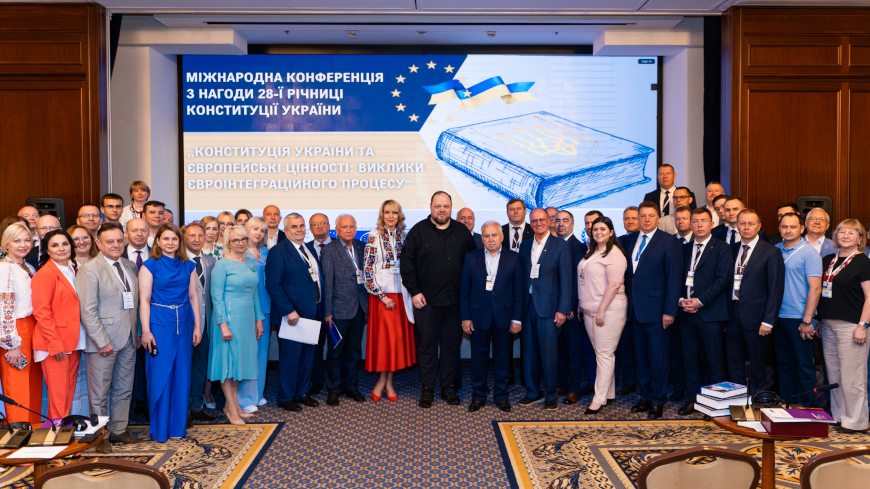The challenges of Ukraine’s European integration process through the prism of the country’s Constitution were the focus of an international conference organised by the Constitutional Court of Ukraine.
Over 180 participants from Ukraine and abroad participated to the conference and explored interpretations based on the European Convention of Human Rights and the Charter of Fundamental Rights of the European Union, fostering a deeper understanding of European human rights standards.
This conference was held on the occasion of the 28th Anniversary of the Constitution of Ukraine with the support of the National Academy of Legal Sciences of Ukraine, the EU/Council of Europe joint project “Support to development of the constitutional justice in Ukraine” and the Special Representative of the OSCE Chairmanship – the OSCE Projects Co-ordinator in Ukraine. It focused on the following issues:
- the rule of law through the prism of the constitutional doctrine and jurisprudence, and
- the real implications of martial law on human dignity and human rights.
The European Union and the Council of Europe are working jointly in the framework of their Partnership for Good Governance, to support the development of constitutional justice and strengthen the functioning of the Constitutional Court of Ukraine in line with European standards. Through our joint work, expert support was provided on:
- the standards of the application of Article 15 of the European Convention on Human Rights based on the case law of the European Court of Human Rights and interpretations and practice of the EU and Council of Europe member states, and
- the rule of law through the prism of the constitutional doctrine and jurisprudence in light of Ukraine’s EU integration.
This event is part of the European Union and Council of Europe joint programme “Partnership for Good Governance”, co-funded by the European Union and the Council of Europe, and implemented by the Council of Europe, in the framework of the project “Support to development of the constitutional justice in Ukraine”.





